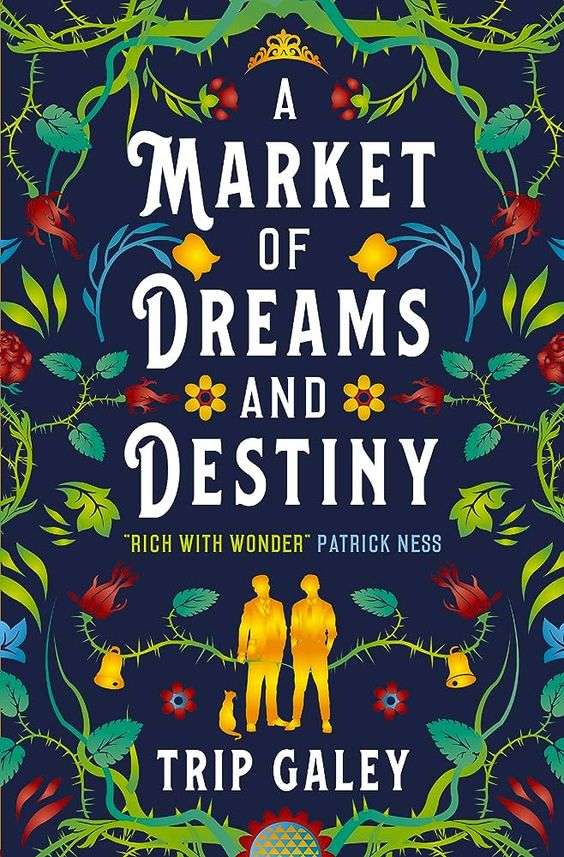A Market of Dreams and Destiny by Trip Galey from @TitanBooks #BookReview #Fantasy
A MARKET OF DREAMS & DESTINY by Trip Galey
Titan Books p/b £8.99
Reviewed by Nigel Robert Wilson

This magnificent tale is among the best of the recent surge of modern Faerie tales currently being published. Not only is the author’s name, Trip Gayley, a joyful pun but there is a distinct sense of Charles Dickens in the work, an appreciation of the Great Bard and even the whimsical touch of the great W S Gilbert, who wrote the Victorian operetta `Iolanthe’. This is more than fantasy, this aspires to become literature.
The plot possesses a detailed structure that penetrates every level of the tale. After the introductory stages, the reader is not left with unresolved issues hanging in mid-air but drawn into a living, breathing alternative reality with a base firmly set in English history. The truth is that rather than resolve his matrimonial difficulties with the Church of Rome, the tyrant Henry Tudor, failing to create a substitute Church of England, recreated druidry and its presumed worship of natural things; causing Old St Paul’s to become a grove of trees beneath which all sorts could romance their most intimate joys. In turn, this allowed the Good Queen Bess to form a treaty with Titania, Queen of Faerie, allowing the creation of a goblin market in dreams and desires in a liminal space found beneath Covent Garden.
The merchants of this Untermarkt are a cunning lot: keen on profit, cautious about their status and intent on keeping their staff in order. One such servant, Deri, apprenticed to the goblin merchant, Maurlocke, is seeking to escape his servitude. Apprenticed to Maurlocke as a child, this young man is seeking a way out at the very same time as Maurlocke is trying to extend his servitude by manipulating the original document of apprenticeship. Deri seizes an opportunity presented by the unexpected appearance in the market of a runaway princess of the ruling House of Saxe-Coburg-Gotha who is seeking to buy a `Happily-Ever-After’ as opposed to the reality of a palace existence as part of the political elite. Deri persuades the young Princess Boudicca to accept a compass to guide her life in exchange for her formal destiny, which he manages to bottle. This bit feels like Harry and Meghan!
In the meantime, Missus Graspar and her son Garog, who have acquired the Grays Inn Workhouse, were gainfully engaged in the process of working the child inhabitants into further misery through the production of etchings. Owain is one of these unfortunates who, on a visit to the goblin market on behalf of his employers, collides with the street-savvy Deri to make a private compact based on their mutual attraction. This relationship is the real love element that pervades the entire plot.
Elsewhere, Dame Aurelia Steele, bodyguard to the now missing Princess Boudicca, is searching all over London town for her missing charge, who has covered her tracks with enchantments. She explores the matter with her sister Silvestra, who, being mechanically inclined, was working with the Graspars to produce a machine that takes old things and makes them new again. This is a very dangerous innovation. Whilst it might suck the lives out of children to make fat old men a few years younger, it totally disrupts the indenture system that had kept the poor nailed to their poverty. A wholly exploitative economic system begins to fail as Deri realises that he won’t be able to sell on the destiny he had exchanged with Princess Boudicca as it threatens the very treaty between Faerie and The Crown that allows the Untermarkt to exist.
This all accumulates into a deliciously complex denouement, which, as with all true Faerie stories, recognises True Love as the great mover and shaker of the universe. This is a wonderful tale which both absorbs and challenges the reader. It is a splendid story: excellent value!

